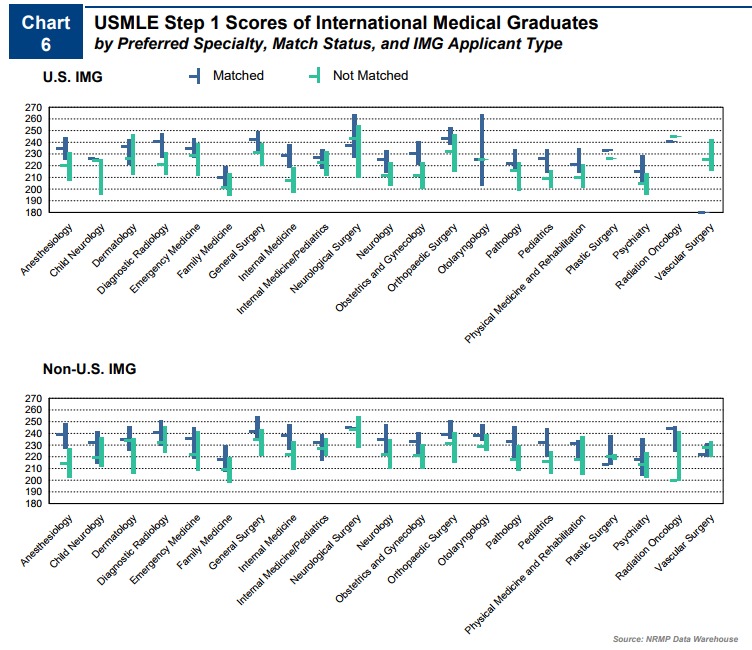How should International Medical Graduates prepare for the US residency match? What would be the best path to ensure success?
International Medical Graduates making the decision to pursue postgraduate medical education training in the US are on a rewarding path, but not a simple one. The process is not only academically competitive, it also requires financial investments. The average img residency applicant will invest two years or longer to take the US examinations known as the USMLE and to develop their ERAS application.
Prior to beginning your pursuit of an img residency, it is imperative you have a solid understanding of the overall process. Applicants know the higher the USMLE score the better but they are often challenged by how to prepare, what materials to utilize and what the score itself correlates to. Countless times we have heard “I knew I had to become ECFMG certified but I didn’t have any guidance so I simply took the exam and passed it.” While passing the exams and becoming ECFMG certified are strong achievements, how does this correlate to an applicant’s success?
The IMG success rate in the Match is 54.8 percent of US IMGs matched to PGY-1 positions and 52.4 Percent of non US IMGs. This is the highest match rate since 2004, but it still leaves a good portion of applicants unsuccessful. What is it that sets these applicants apart? Focused organization and preparation are the keys to finding a US Residency Match.
What are the Passing Scores for the USMLE Exams? (Update 06/2021)
The current minimum USMLE passing scores are as follows:
Step 1: 194
Step 2 CK: 209
Step 3: 198
Are there attempt limits for the USMLE Examination?
The Federation of State Medical Boards has a list of state-specific requirements for initial medical licensure. This addresses not only the number of maximum attempts for the USMLE examination as well as the time limit for completing licensing examination sequence.
International Medical Graduates Should Prepare for the USMLE
In this blog, we will focus on the USMLE Scores. Your USMLE scores are your initial signature – the first commentary on your application to become ECFMG certified. Applicants are expected to complete three separate examinations:
The data below shows data from the 2016 Main Residency Match and score of International Medical Graduates broken down by Specialty, Match status, and U.S. and Non-U.S. IMG.
An applicant’s performance on USMLE examinations is a good indicator of one’s viability in the residency match but this is only a piece of the greater picture.(view average USMLE step 1 scores you may look at the NRMP charting outcomes for international medical graduates ) Your ERAS Application Form serves to highlight your full timeline from graduation to date of application. Coupled with letters of recommendation and a residency personal statement, your application in its entirety serves as a bid for a residency interview. Your application presents a unique picture of who you are; it will determine your level of competitiveness.
Your performance on the USMLE exams will better enable you to understand the competitiveness of your application. By understanding your competitiveness, you will be able to tailor your future endeavors, US clinical experience, research, and volunteer activity specifically for specialties where you have a better chance of matching. This will ensure that the letters of recommendation you receive for your performance in your clinical rotations match the specialties for which you will be applying. One of the most vital components of your application will be current US clinical experience.
The most important thing you can do to help your residency application at this stage would be to focus on performing well on your USMLE. You may find up to date current information about the exams here http://www.usmle.org.
Contact our team at IMGPrep for a free comprehensive consultation to help you understand the process and maximize your chances of a successful residency MATCH. Thank you for your interest in IMGPrep, and we look forward to working with you in the future.
IMGprep is not associated with the NRMP® or the MATCH®
Related
About Us
Established in 2005, IMGPrep assists International Medical Graduates in searching for U.S residency positions. We offer a complete set of affordable services. Our experts evaluate each IMG candidate and suggest what is needed for a medical residency match in the USA.
Contact Us
IMGPrep LLC, 1725 I St NW #300
Washington, DC 20006
For support or any questions:
Email us at contactus@imgprep.com
Fax: +1 (202) 751-2590

